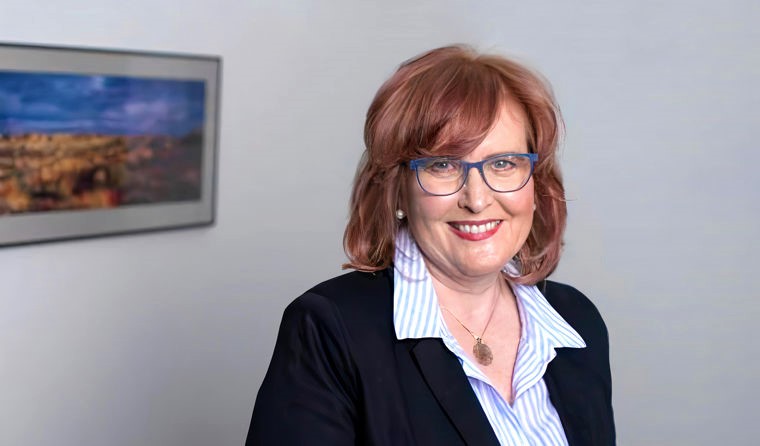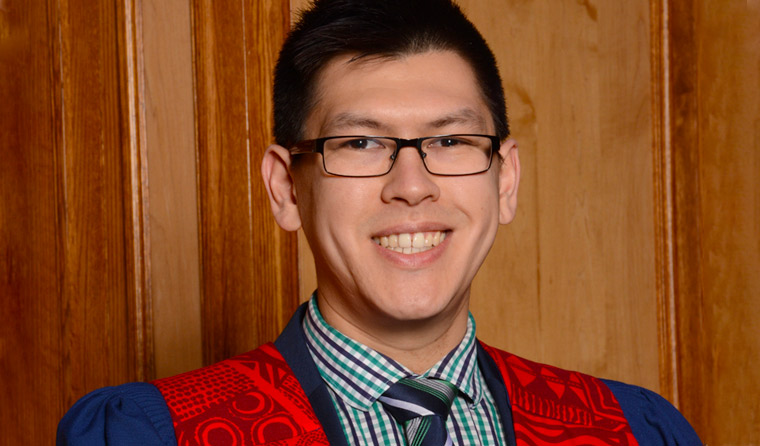News
‘Meaningful’ healthcare reform needed to address concerning trend
A new report has found Australian medical graduates are increasingly choosing to pursue a non-GP speciality over general practice.
 Finances are not the only reason why fewer medical graduates are choosing specialties other than general practice.
Finances are not the only reason why fewer medical graduates are choosing specialties other than general practice.
The research, conducted by Melbourne University and commissioned by ANZ, has found that the number of non-GP specialists is growing annually by 4.5% compared to GPs at 3.5%.
This is ‘despite the growing burden of chronic disease and a recognised need for more generalist doctors [with a wide range of skills across different disease areas] inside, but especially outside, of major cities,’ the report notes.
RACGP President Dr Karen Price told newsGP the issue is multifaceted, and that addressing it is imperative to Australia’s healthcare system.
‘We need to set a target,’ she said.
‘It is currently 16%, [but] we need 50% of graduates choosing general practice as their specialty of choice.
‘Otherwise, we’re headed to fragmented care, super sub-specialisation of everything, and we know, looking at the United States, that’s not a good way to run a healthcare system.’
The report also notes that the income gap between specialities has simultaneously widened, with GP incomes having increased by 10.7% between 2008 and 2018 (1.1% per year) compared to 21.5% for non-GP specialists (2.2% per year).
Professor Anthony Scott, lead author and head of the Health and Healthcare theme at the Melbourne Institute: Applied Economic and Social Research, told newsGP there are many reasons behind graduates’ choices, but wages appear to be a dominant factor.
‘The income gap is huge,’ he said. ‘It doesn’t matter for all of them, but for some it does, and the gap’s just getting bigger.
‘The Medicare Freeze hasn’t helped the situation. When the Government is thinking of not funding this particular item for GPs versus something else, these considerations need to be brought into those debates because it’s not just about pulling that item.’
Chair of the RACGP’s National Faculty for GPs in Training, Dr Sean Black-Tiong says while the aim is to attract the highest quality medical graduates, it can be challenging when there are other ‘more lucrative options’ available.
‘I think it is a problem of general practice not being valued as generalists, and the inherent problems with Medicare funding and a fee-for-service model that relates to incentivising processes and procedures rather than knowledge, conversations and generalist care,’ he told newsGP.
‘That’s just a short sightedness by the powers that be.’
As it stands, Dr Black-Tiong says the fee-for-service model doesn’t incentivise good healthcare.
‘There needs to be more meaningful healthcare reform and, potentially, a really large overhaul of the Medicare system, particularly with regards to Medicare rebates and the fee-for-service model,’ he said.
‘The lowest common denominator of the current model is Level Bs – and it’s not even to be financially lucrative, but just to be financially viable as a GP, to survive and keep your practice running – is to speed things up and to practice shorter consults.
‘But this misses out on one of the biggest advantages of general practice, which is those extra moments added into every consult when you do have a spare 5–10 minutes to talk to the patient because maybe their issue was a bit more simple or straightforward, [to] explore some of the things that maybe the patient didn’t think they wanted to talk about today, like their preventive healthcare, their screening, and those are the things that help to reduce the burden on the hospital system as well.’

Dr Karen Price says the Federal Government has ‘recognised that primary care is the answer’.
Finances are not the only contributing factor for graduates. Professor Scott says preferences do tend to change and form throughout medical training, and it is usually through the input of their supervisors and mentors that graduates choose their path.
Dr Price says this is evidenced by the lack of exposure students have to general practice during their training.
‘In general, the experience of medical students from university into hospitals is they don’t have a lot of exposure to primary care,’ she said.
‘We need to see the students have exposure to role models and mentors, and communities where they can see themselves practising.
‘But it’s also about having a good experience in that community care environment, seeing general practice as a … highly skilled, highly valued, and fairly demanding specialty intellectually, which for these young, avid learners is a great and meaningful practice.’
The issue is particularly pronounced in rural and remote parts of the country. While the report noted an increase in the number of doctors working outside of major cities from 2013–2019, from 22% to 22.8%, the exception was general practice, with the number falling from 29.2% to 28.7%.
‘The first places to suffer when there are shortages in the medical workforce are rural and remote communities, which we’re already seeing,’ Dr Black-Tiong said.
‘The workload in the country is that much harder because there are fewer people out there, which then makes it less attractive for [GPs] to go out there to help because no one wants to go out and take on overburdening on-call rosters.
‘Whereas if there were already 10 GPs out in that country town, and you only had to do on-call once every two weeks, it’d be much easier to get more rural doctors out there.
‘It’s in this bit of a self-perpetuating cycle.’
Dr Price acknowledges that there are a series of barriers GPs face in moving out of major cities, from childcare needs to local accommodation, as well as ensuring there is a good quality training environment.
‘So making sure there is someone who’s got the capacity,’ she said. ‘There’s no point sending out someone to a training environment if the doctor there is so busy, they don’t have time to train you.
‘We need to have a supported team, and we need to make sure there’s some load sharing.’

Dr Sean Black-Tiong says the fee-for-service model doesn’t incentivise good healthcare.
Both Dr Price and Dr Black-Tiong believe the return to profession-led training is an important step in the right direction.
‘The area we want to land on is a highly collegiate educative experience, which is not just about learning facts, but it’s about learning a vocation, and it’s about having mentors, role models and colleagues that can surround you because the other part of this is that general practice is quite an isolated profession,’ Dr Price said.
‘Sarah Larkins in her 2004 paper described general practice as one room, one doctor, one patient, making all the decisions at one time. That doesn’t really happen that often in a hospital; you have teams, and being able to have some supportive colleagues, having access to team-based care is going to really enrich the experience of delivering general practice care.’
Dr Black-Tiong says unless there is important reform in primary care to attract more graduates to general practice, there will be far-reaching consequences.
‘It will just result in more preventable diseases arriving at hospitals, more people with poorly controlled and managed diabetes, more people with ischemic heart disease, more undetected cancers that have presented at a later stage when they could have been managed much more simply 5–10 years prior,’ he said.
‘So it’s all these flow on effects that short-term political cycles don’t seem to appreciate or understand or have the motivation to want to enact meaningful healthcare reforms and change.’
However, Dr Price is hopeful and says the Federal Government has ‘recognised that primary care is the answer’.
‘There’s a whole lot of reform underway at the moment,’ she said.
‘We’re working very collaboratively with Government … and we’re really pleased to be able to show the evidence and demonstrate the capacity of primary care. It’s a big picture thing, and it probably won’t change overnight, but it does need to change.
‘We need to have our graduates see what a wonderful profession general practice is, how rewarding it is to practice to the full scope of your abilities. We train up general practitioners to a supremely high standard in Australia and to have them sit on their hands with those skills, it just seems a waste of resources.’
Log in below to join the conversation.
GPs in training medical graduates
newsGP weekly poll
Within general practice, do you think there are barriers to providing flu vaccinations? If so, what are they?